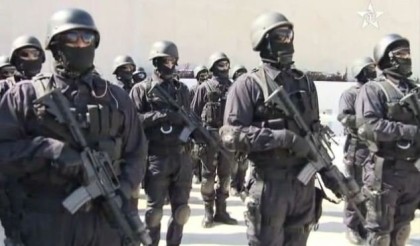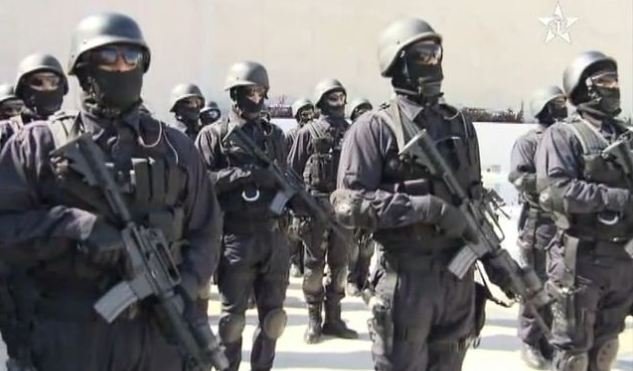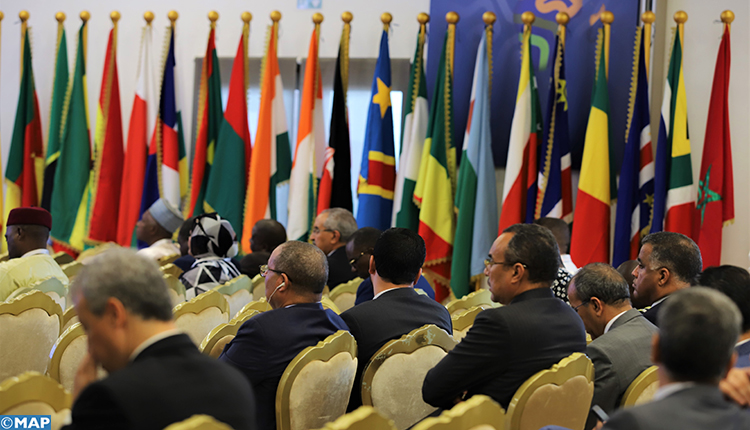 Just two days after it was officially set up, the Moroccan Central Bureau of Judicial Investigation or BCIJ dismantled on March 22 a terrorist cell that was planning to assassinate military and political personalities as well as civil society activists on behalf of the Islamic State Group.
Just two days after it was officially set up, the Moroccan Central Bureau of Judicial Investigation or BCIJ dismantled on March 22 a terrorist cell that was planning to assassinate military and political personalities as well as civil society activists on behalf of the Islamic State Group.
The cell described by the Interior Ministry as “dangerous” was made up of thirteen members aged between 19 and 37 and was operating in nine cities in Morocco, the Bureau’s chief Abdelhak El Khayam told the media. The 13 suspects had all pledged allegiance to the self-proclaimed Caliph of the Islamic State, Abubakr Al Baghdadi, he said.
According to the BCIJ chief, the terrorist cell was in possession of weapons and ammunition and was planning the assassination of military and security officials as well as politicians and civil society activists. In addition to its plans at home, the cell was attempting to recruit, with foreign financial support, Moroccans for Jihad in the ranks of the Islamic State Group.
The head of the cell lives in Agadir, southern Morocco, and most of the cell members had only a primary-level education, said Abdelhak El Khayam who revealed that the BCIJ seized “440 cartridges, six guns and 31 plastic handcuffs and electronic equipment” in a cache near Agadir.
According to preliminary results of the investigation, “the weapons transited via the Spanish enclave of Melilla,” but “it has not yet been established whether those arrested are linked to cells in Europe,” said the BCIJ chief, adding that the suspects had been under surveillance for more than five months and that the cell dismantling was conducted simultaneously in nine Moroccan cities.
As to the cell’s relationship with Daech, he said no member of the cell ever traveled abroad to be in direct touch with the group but there were regular exchanges via internet. The cell which pledged allegiance to the IS leader described itself as the representative of the IS in the extreme Maghreb, he said.
He said the cell members were planning to attack security agents, like the security forces deployed part of the vigilance plan “Hadar,” to seize their weapons.
The BCIJ chief also revealed that there were some 1354 Moroccan jihadists including 185 women and 50 children fighting in conflict zones in Syria, Iraq and Libya and that 156 individuals left the hot spots and returned home.
The successful operation conducted by the Central Bureau of Judicial Investigations, a branch of the General Directorate of Territorial surveillance, known by its French acronym as DGST, justifies the creation of this new unit that represents the leading edge in counterterrorism techniques, at a time the terrorist threat is endangering the country, the region and the whole world.
The Islamic State group has actually threatened to launch terrorist attacks against Morocco many times, the latest was made last week in the wake of the attack against the Bardo Museum in Tunisia.
This shows the extent of the danger posed by these extremists and the necessity for constant mobilization to spare the country the fate of other Arab states mired in insecurity and political chaos because of the proliferation of extremist armed groups.
Morocco, which does not hide its concern about the terrorism plague is constantly upgrading its anti-terrorism legislation and apparatus. Last year, it set up a new mechanism, called “Hadar,” to enhance the protection of citizens and foreign visitors. The mechanism involves the Royal Armed Forces, the Royal Gendarmerie, the Police and the Auxiliary Forces.
And the creation of the BCIJ this month precisely falls in the context of these sustained anti-terrorism efforts.



